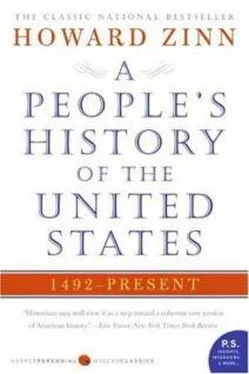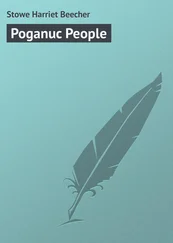Howard Zinn - A People
Здесь есть возможность читать онлайн «Howard Zinn - A People» весь текст электронной книги совершенно бесплатно (целиком полную версию без сокращений). В некоторых случаях можно слушать аудио, скачать через торрент в формате fb2 и присутствует краткое содержание. Издательство: Harper-Collins, Жанр: Фэнтези, на английском языке. Описание произведения, (предисловие) а так же отзывы посетителей доступны на портале библиотеки ЛибКат.
- Название:A People
- Автор:
- Издательство:Harper-Collins
- Жанр:
- Год:неизвестен
- ISBN:нет данных
- Рейтинг книги:4 / 5. Голосов: 1
-
Избранное:Добавить в избранное
- Отзывы:
-
Ваша оценка:
- 80
- 1
- 2
- 3
- 4
- 5
A People: краткое содержание, описание и аннотация
Предлагаем к чтению аннотацию, описание, краткое содержание или предисловие (зависит от того, что написал сам автор книги «A People»). Если вы не нашли необходимую информацию о книге — напишите в комментариях, мы постараемся отыскать её.
A People — читать онлайн бесплатно полную книгу (весь текст) целиком
Ниже представлен текст книги, разбитый по страницам. Система сохранения места последней прочитанной страницы, позволяет с удобством читать онлайн бесплатно книгу «A People», без необходимости каждый раз заново искать на чём Вы остановились. Поставьте закладку, и сможете в любой момент перейти на страницу, на которой закончили чтение.
Интервал:
Закладка:
In New York in 1741, there were ten thousand whites in the city and two thousand black slaves. It had been a hard winter and the poor-slave and free-had suffered greatly. When mysterious fires broke out, blacks and whites were accused of conspiring together. Mass hysteria developed against the accused. After a trial full of lurid accusations by informers, and forced confessions, two white men and two white women were executed, eighteen slaves were hanged, and thirteen slaves were burned alive.
Only one fear was greater than the fear of black rebellion in the new American colonies. That was the fear that discontented whites would join black slaves to overthrow the existing order. In the early years of slavery, especially, before racism as a way of thinking was firmly ingrained, while white indentured servants were often treated as badly as black slaves, there was a possibility of cooperation. As Edmund Morgan sees it:
There are hints that the two despised groups initially saw each other as sharing the same predicament. It was common, for example, for servants and slaves to run away together, steal hogs together, get drunk together. It was not uncommon for them to make love together. In Bacon's Rebellion, one of the last groups to surrender was a mixed band of eighty negroes and twenty English servants.
As Morgan says, masters, "initially at least, perceived slaves in much the same way they had always perceived servants… shiftless, irresponsible, unfaithful, ungrateful, dishonest…" And "if freemen with disappointed hopes should make common cause with slaves of desperate hope, the results might be worse than anything Bacon had done."
And so, measures were taken. About the same time that slave codes, involving discipline and punishment, were passed by the Virginia Assembly, Virginia's ruling class, having proclaimed that all white men were superior to black, went on to offer their social (but white) inferiors a number of benefits previously denied them. In 1705 a law was passed requiring masters to provide white servants whose indenture time was up with ten bushels of corn, thirty shillings, and a gun, while women servants were to get 15 bushels of corn and forty shillings. Also, the newly freed servants were to get 50 acres of land.
Morgan concludes: "Once the small planter felt less exploited by taxation and began to prosper a little, he became less turbulent, less dangerous, more respectable. He could begin to see his big neighbor not as an extortionist but as a powerful protector of their common interests."
We see now a complex web of historical threads to ensnare blacks for slavery in America: the desperation of starving settlers, the special helplessness of the displaced African, the powerful incentive of profit for slave trader and planter, the temptation of superior status for poor whites, the elaborate controls against escape and rebellion, the legal and social punishment of black and white collaboration.
The point is that the elements of this web are historical, not "natural." This does not mean that they are easily disentangled, dismantled. It means only that there is a possibility for something else, under historical conditions not yet realized. And one of these conditions would be the elimination of that class exploitation which has made poor whites desperate for small gifts of status, and has prevented that unity of black and white necessary for joint rebellion and reconstruction.
Around 1700, the Virginia House of Burgesses declared:
The Christian Servants in this country for the most part consists of the Worser Sort of the people of Europe. And since… such numbers of Irish and other Nations have been brought in of which a great many have been soldiers in the late wars that according to our present Circumstances we can hardly governe them and if they were fitted with Armes and had the Opertunity of meeting together by Musters we have just reason to fears they may rise upon us.
It was a kind of class consciousness, a class fear. There were things happening in early Virginia, and in the other colonies, to warrant it.
Persons of Mean and Vile Condition
In 1676, seventy years after Virginia was founded, a hundred years before it supplied leadership for the American Revolution, that colony faced a rebellion of white frontiersmen, joined by slaves and servants, a rebellion so threatening that the governor had to flee the burning capital of Jamestown, and England decided to send a thousand soldiers across the Atlantic, hoping to maintain order among forty thousand colonists. This was Bacon's Rebellion. After the uprising was suppressed, its leader, Nathaniel Bacon, dead, and his associates hanged, Bacon was described in a Royal Commission report:
He was said to be about four or five and thirty years of age, indifferent tall but slender, black-hair'd and of an ominous, pensive, melancholly Aspect, of a pestilent and prevalent Logical discourse tending to atheisme… He seduced the Vulgar and most ignorant people to believe (two thirds of each county being of that Sort) Soc that their whole hearts and hopes were set now upon Bacon. Next he charges the Governour as negligent and wicked, treacherous and incapable, the Lawes and Taxes as unjust and oppressive and cryes up absolute necessity of redress. Thus Bacon encouraged the Tumult and as the unquiet crowd follow and adhere to him, he listeth them as they come in upon a large paper, writing their name circular wise, that their Ringleaders might not be found out. Having connur'd them into this circle, given them Brandy to wind up the charme, and enjoyned them by an oath to stick fast together and to him and the oath being administered, he went and infected New Kent County ripe for Rebellion .
Bacon's Rebellion began with conflict over how to deal with the Indians, who were close by, on the western frontier, constantly threatening. Whites who had been ignored when huge land grants around Jamestown were given away had gone west to find land, and there they encountered Indians. Were those frontier Virginians resentful that the politicos and landed aristocrats who controlled the colony's government in Jamestown first pushed them westward into Indian territory, and then seemed indecisive in fighting the Indians? That might explain the character of their rebellion, not easily classifiable as either antiaristocrat or anti-Indian, because it was both.
And the governor, William Berkeley, and his Jamestown crowd-were they more conciliatory to the Indians (they wooed certain of them as spies and allies) now that they had monopolized the land in the East, could use frontier whites as a buffer, and needed peace? The desperation of the government in suppressing the rebellion seemed to have a double motive: developing an Indian policy which would divide Indians in order to control them (in New England at this very time, Massasoit's son Metacom was threatening to unite Indian tribes, and had done frightening damage to Puritan settlements in "King Philip's War"); and teaching the poor whites of Virginia that rebellion did not pay-by a show of superior force, by calling for troops from England itself, by mass hanging.
Violence had escalated on the frontier before the rebellion. Some Doeg Indians took a few hogs to redress a debt, and whites, retrieving the hogs, murdered two Indians. The Doegs then sent out a war party to kill a white herdsman, after which a white militia company killed twenty-four Indians. This led to a series of Indian raids, with the Indians, outnumbered, turning to guerrilla warfare. The House of Burgesses in Jamestown declared war on the Indians, but proposed to exempt those Indians who cooperated. This seemed to anger the frontiers people, who wanted total war but also resented the high taxes assessed to pay for the war.
Times were hard in 1676. "There was genuine distress, genuine poverty… All contemporary sources speak of the great mass of people as living in severe economic straits," writes Wilcomb Washburn, who, using British colonial records, has done an exhaustive study of Bacon's Rebellion. It was a dry summer, ruining the corn crop, which was needed for food, and the tobacco crop, needed for export. Governor Berkeley, in his seventies, tired of holding office, wrote wearily about his situation: "How miserable that man is that Governes a People where six parts of seaven at least are Poore Endebted Discontented and Armed."
Читать дальшеИнтервал:
Закладка:
Похожие книги на «A People»
Представляем Вашему вниманию похожие книги на «A People» списком для выбора. Мы отобрали схожую по названию и смыслу литературу в надежде предоставить читателям больше вариантов отыскать новые, интересные, ещё непрочитанные произведения.
Обсуждение, отзывы о книге «A People» и просто собственные мнения читателей. Оставьте ваши комментарии, напишите, что Вы думаете о произведении, его смысле или главных героях. Укажите что конкретно понравилось, а что нет, и почему Вы так считаете.












